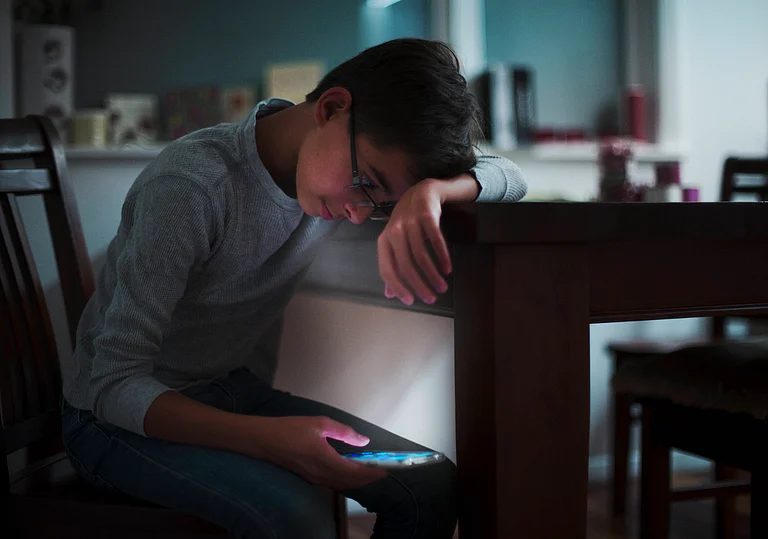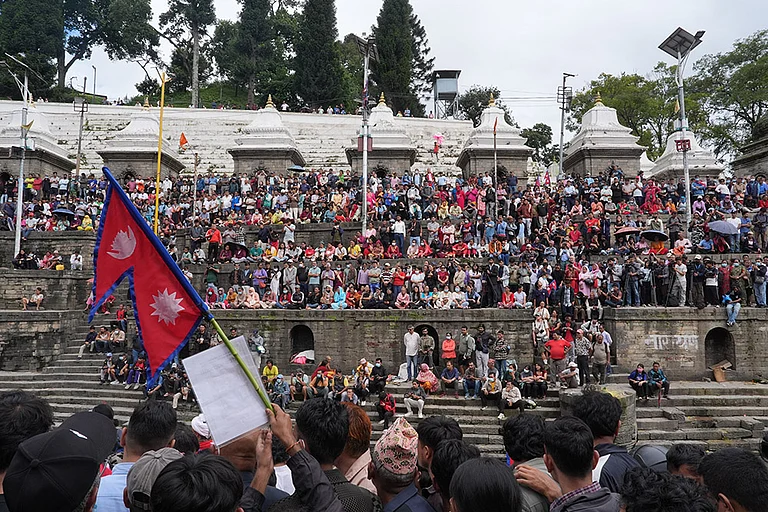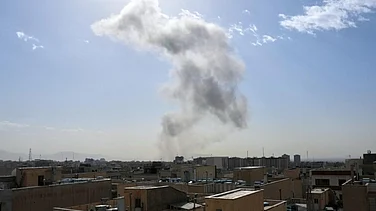
Protestors torched the Home Minister’s house and vandalised other leaders’ homes despite curfews and army deployment.
The unrest was triggered by a social media ban, with clashes leaving at least 19 dead and over 300 injured.
Students continue to demand PM Oli’s resignation, blaming him for the violence and deaths during the crackdown.
A new wave of student-led anti-government protests erupted in various parts of Nepal on Tuesday despite restrictions on public gatherings, calling for Prime Minister K P Sharma Oli to quit.
This is the second day of protests after the administration of Prime Minister KP Sharma Oli lifted a social media ban in response to the "demand of Gen-Z." Tensions in Nepal persisted on Tuesday as new violent demonstrations broke out across the nation.
According to PTI, a curfew was imposed in several parts of the country, including the capital Kathmandu, after demonstrators pelted stones, torched houses of leaders, and marched on the streets for the second consecutive day.
Arson and Vandalism Breaks Out on Second Day of Protests
The administration under Prime Minister Khadga Prasad Oli, who has grown more unpopular, was the target of the demonstrators' anger. Since Monday, protesters have called for the Prime Minister to be fired, leading to the resignation of two Oli cabinet officials.
The student led protest has reportedly set fire to the private residences of President Ram Chandra Poudel and Prime Minister Oli.
Videos have circulated on social media showing demonstrators roaming through the President's house and vandalising it. Houses of former Nepali Prime Ministers Pushpa Kamal Dahal alias Prachanda and Sher Bahadur Deuba, and Energy Minister Deepak Khadka were also damaged by protestors.
According to PTI, the homes of former Nepali Prime Ministers Pushpa Kamal Dahal and Sher Bahadur Deuba in Kathmandu's Budhanilkantha neighborhood have been targeted and vandalized by protestors.
Protesters have vandalised and set fire to the residence of Ramesh Lekhak, Minister of Home Affairs of Nepal, in Naikap. Lekhak, who resigned from his role on Monday, is the latest target in a wave of attacks on political leaders.
According to eyewitnesses, the dissident youngsters also threw stones at Communication Minister Prithvi Subba Gurung's home in Sunakothi, Lalitpur district.
Demonstrators are also reportedly vandalising and torching homes of other top leaders, as nationwide protests intensify despite curfews and security deployments.
Protests in the Chapagaun-Thecho neighborhood in Lalitpur district, as well as Kalanki and Baneshwor in Kathmandu, have been reported by the police. According to witness testimonies, protesters in Kalanki began blocking roads in the early hours of the morning by burning tires.
Disobeying the ban on public meetings, protesters, who were primarily students, yelled slogans like "Don't kill students,"after the violence of Monday’s protest claimed several lives.
Slogans like "Take action against corrupt leaders" and "KP Chor, Desh Chhod" (K P Sharma Oli is a thief, leave the country) were yelled by the demonstrators.
Curfews Imposed and Army Activated
Curfews have been imposed by authorities in the districts of Bhaktapur, Lalitpur, and Kathmandu.
Reportedly, the capital city will be under a curfew from 8:30 am till further notice, according to the Kathmandu District Administration Office.
Additionally, Madhyapur Thimi, Suryabinayak, Changunarayan, and Bhaktapur municipalities were subject to restrictions from 8:30 am till further notice by the district administration of Bhaktapur.
The curfew in Lalitpur is in effect from 9 a.m. to midnight in a number of locations, including Bhaisepati, Sanepa, and Chyasal.
Youths' violent protests over a government ban on social media platforms shook Nepal on Monday, as at least 19 people were killed and over 300 were injured when police used force.
When things worsened, the Nepali Army was sent to the capital. The roadways around the parliament complex in New Baneshwor were taken over by army forces.
UN Calls for Transparent Investigation Into Killings
The UN issued a statement from Geneva on Monday calling on the Nepali authorities to respect and ensure the rights of peaceful assembly and freedom of expression.
It asked all security forces to comply with the basic principles on the use of force and firearms by law enforcement officials.
"We are shocked by the killings and injury of protesters in Nepal today and urge a prompt and transparent investigation. We have received several deeply worrying allegations of unnecessary or disproportionate use of force by security forces during protests organised by youth groups demonstrating against corruption and the recent Government ban on social media platforms," the statement said.
It added, "Nepal enjoys a lively democracy and active civic space, and dialogue is the best means to address young people’s concerns. We urge reconsideration of measures to regulate social media to ensure they comply with Nepal’s human rights obligations."
The Social Media Ban and What Followed
Last week, a number of popular social media platforms, such as Facebook, X, and YouTube, were banned in Nepal for not adhering to a new registration and submission requirement set by the government. Tens of thousands of people attended the anti-ban rallies in Kathmandu on Monday, and before police opened fire on the protesters, mobs gathered around the Parliament building.
According to reports, in a late-night decision, the government lifted the ban on social media apps after widespread protests, led by Gen Z, turned violent, resulting in clashes with the police that led to the death of 19 people.
Nepal Minister for Communication, Information, and Broadcasting Prithvi Subba Gurung announced that the government has withdrawn its earlier decision to ban social media sites and stated that the government does not regret its earlier decision to shut the social media platforms down.
Nepali Congress General Secretary Gagan Thapa has also called on Prime Minister Oli to take moral responsibility for the deaths of protesters during the demonstrations and to resign from his post.



























